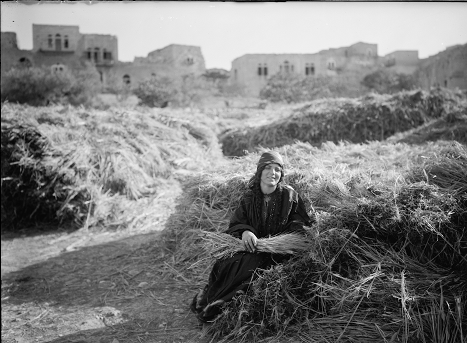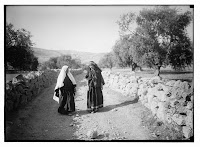At this time of Shavuot (also known as Pentecost), when we celebrate the giving of the Law through Moses 50 days after the exodus from Egypt, and its ultimate fulfillment in Yeshua (Jesus), consider how a young Welsh girl inspired a global explosion of God’s word.
In the year 1800, 15-year-old Mary Jones completed a marathon walk over the mountains to purchase a Bible, which was to become her most treasured possession.
A weaver’s daughter from a poor community, Mary lost her father to asthma when she was very young and was living with her mother in the tiny hamlet of Llanfihangel-y-pennant (near Dolgellau) in the shadow of the Idris mountain on the edge of Snowdonia.
Bibles were hard to come by in those days, especially copies in the Welsh language. Mary became a Christian, aged eight, through attending her village chapel and subsequently saved up for six long years – carrying out various errands like sewing garments and selling eggs – before she finally had enough to buy her own copy of the Scriptures.
So she set off barefoot on a 26-mile trek over mountain tracks to the town of Bala, where she knocked on the door of Rev Thomas Charles, who was so profoundly moved and inspired by her efforts that he and others were determined to make the Bible available to everyone at an affordable price – not only in Welsh, but in every tongue.
Mary’s epic journey has thus helped to bring God’s light – and salvation – to every corner of the globe, and has given new meaning to the ancient Scripture: “Your word is a lamp for my feet, and a light for my path.” (Psalm 119.105)
Who knows but that the eternal fruit of Mary’s marathon may have partly contributed to what the Book of Revelation describes as “a great multitude that no-one could count, from every nation, tribe, people and language, standing before the throne and before the Lamb.” (Revelation 7.9)
Historical records indicate that the village where Mary grew up was strongly influenced by the 18th century Methodist revival. Bala had certainly been experiencing fresh heavenly fire in the years immediately preceding her extraordinary shopping expedition.
With the immense popularity of marathon running today, many will be familiar with the distance Mary walked, equal to that covered in ancient Greece by the herald who ran all the way to Athens to announce victory at the Battle of Marathon.
But Mary’s feat would be hard to beat, because it was to bring good news of the victory of Jesus over death and sin, and revolutionise the lives of millions down the ages.
In a generation when parents drive their children to school, perhaps less than a mile away, perhaps it’s time to re-educate our kids about what really matters in life? Teaching the precepts of God is not only good for the soul, but health for the body (Proverbs 3.7f).
The Bible says “physical training is of some value, but godliness has value for all things, holding promise for both the present life and the life to come.” And it adds that we should “run with perseverance the race marked out for us, fixing our eyes on Jesus…” In addressing the need for self-discipline, St Paul challenges: “Do you not know that in a race all the runners run, but only one gets the prize? Run in such a way as to get the prize.” Perhaps Mary was urged on by Paul’s motto: “…forgetting what is behind and straining toward what is ahead, I press on toward the goal to win the prize for which God has called me heavenward in Christ Jesus.” (1 Timothy 4.8, Hebrews 12.1f, 1 Corinthians 9.24, Philippians 3.13f)
Bible Society is now helping to raise the profile of Mary’s story, and made an excellent start in 2014 with the opening of Mary Jones World at Llanycil, just a mile to the west of Bala, alongside the beautiful lake of the same name. A disused church has been renovated (even with underfloor heating) and now houses a superb state-of-the-art exhibition enabling visitors to spend several hours discovering more about the Bible as well as engaging with an inspiring story that shook the world.
At Shavuot we remember how Jesus came to fulfil the Law (Matthew 5.17) and how it came to be written, not just on tablets of stone, but on the hearts of those who believed as they were endued with power from on high (Acts 1.8, Luke 24.49, Acts 2.4, 2 Corinthians 3.3, Ezekiel 36.26).
My personal Pentecost took place on April 3rd 1980. I spoke in tongues with some difficulty, but I have no doubt that I was endued with power from on high as I received an emboldening to share my faith as never before.
Chapels can be seen almost everywhere you look in Wales – sadly many have been turned to other uses such as homes and shops, but they remain signs of several significant revivals over recent centuries which have shaken the world, and for which Christians on all continents can be truly thankful.
Do it again, Lord! Send your fire on our newly-restored altars of sacrifice as we honour, worship and proclaim your name among the nations. (See 1 Kings 18.16-40)
















